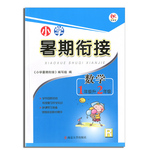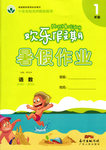题目内容
13.It was 8 o'clock at nightwhen we arrived at (我们到达)what seemingly used to be a village school.(arrive)分析 当我们到达好像过去是一所乡村学校的地方时,已经是晚上八点了.
解答 答案:when we arrived at;
到达:arrive at;句中when we arrive at what seemingly used to be a village school是一个时间状语从句,表示当…时候;句意表达的是过去的事实,要用一般过去时态.
点评 翻译填空题考查的是词汇的记忆和运用能力,平时要注意积累和运用.同时还要注意区分近义短语.

练习册系列答案
 波波熊暑假作业江西人民出版社系列答案
波波熊暑假作业江西人民出版社系列答案 学而优暑期衔接南京大学出版社系列答案
学而优暑期衔接南京大学出版社系列答案 Happy holiday欢乐假期暑假作业广东人民出版社系列答案
Happy holiday欢乐假期暑假作业广东人民出版社系列答案
相关题目
1.Simon Sinek is naturally shy and doesn't like speaking to crowds.At parties,he says he hides alone in the corner or doesn't even show up in the first place.He prefers the latter.Yet,with some 22million video views under his belt,the optimistic ethnographer also happens to be the third most-watched TED Talks presenter of all time.
Sinek's unlikely success as both an inspirational speaker and a bestselling author isn't just dumb luck.It's the result of fears faced and erased,trial and error and tireless practice,on and off stage.Here are his secrets for delivering speeches that inspire,inform and entertain.
Don't talk right away.
Sinek says you should never talk as you walk out on stage."A lot of people start talking right away,and it's out of nerves,"Sinek says."That communicates a little bit of insecurity and fear."
Instead,quietly walk out on stage.Then take a deep breath,find your place,wait a few seconds and begin."I know it sounds long and tedious and it feels excruciatingly awkward when you do it,"Sinek says,"but it shows the audience you're totally confident and in charge of the situation."
Show up to give,not to take.
Often people give presentations to sell products or ideas,to get people to follow them on social media,buy their books or even just to like them.Sinek calls these kinds of speakers"takers,"and he says audiences can see through these people right away.And,when they do,they disengage.
"We are highly social animals,"says Sinek."Even at a distance on stage,we can tell if you're a giver or a taker,and people are more likely to trust a giver-a speaker that gives them value,that teaches them something new,that inspires them-than a taker."
Speak unusually slowly.
When you get nervous,it's not just your heart beat that quickens.Your words also tend to speed up.Luckily Sinek says audiences are more patient and forgiving than we know.
"They want you to succeed up there,but the more you rush,the more you turn them off,"he says."If you just go quiet for a moment and take a long,deep breath,they'll wait for you.It's kind of amazing."
Turn nervousness into excitement.
Sinek learned this trick from watching the Olympics.A few years ago he noticed that reporters interviewing Olympic athletes before and after competing were all asking the same question."Were you nervous?"And all of the athletes gave the same answer:"No,I was excited."These competitors were taking the body's signs of nervousness-clammy hands,pounding heart and tense nerves-and reinterpreting them as side effects of excitement and exhilaration.
When you're up on stage you will likely go through the same thing.That's when Sinek says you should say to yourself out loud,"I'm not nervous,I'm excited!"
Say thank you when you're done.
Applause is a gift,and when you receive a gift,it's only right to express how grateful you are for it.This is why Sinek always closes out his presentations with these two simple yet powerful words:thank you.
"They gave you their time,and they're giving you their applause."Says Sinek."That's a gift,and you have to be grateful."
Sinek's unlikely success as both an inspirational speaker and a bestselling author isn't just dumb luck.It's the result of fears faced and erased,trial and error and tireless practice,on and off stage.Here are his secrets for delivering speeches that inspire,inform and entertain.
Don't talk right away.
Sinek says you should never talk as you walk out on stage."A lot of people start talking right away,and it's out of nerves,"Sinek says."That communicates a little bit of insecurity and fear."
Instead,quietly walk out on stage.Then take a deep breath,find your place,wait a few seconds and begin."I know it sounds long and tedious and it feels excruciatingly awkward when you do it,"Sinek says,"but it shows the audience you're totally confident and in charge of the situation."
Show up to give,not to take.
Often people give presentations to sell products or ideas,to get people to follow them on social media,buy their books or even just to like them.Sinek calls these kinds of speakers"takers,"and he says audiences can see through these people right away.And,when they do,they disengage.
"We are highly social animals,"says Sinek."Even at a distance on stage,we can tell if you're a giver or a taker,and people are more likely to trust a giver-a speaker that gives them value,that teaches them something new,that inspires them-than a taker."
Speak unusually slowly.
When you get nervous,it's not just your heart beat that quickens.Your words also tend to speed up.Luckily Sinek says audiences are more patient and forgiving than we know.
"They want you to succeed up there,but the more you rush,the more you turn them off,"he says."If you just go quiet for a moment and take a long,deep breath,they'll wait for you.It's kind of amazing."
Turn nervousness into excitement.
Sinek learned this trick from watching the Olympics.A few years ago he noticed that reporters interviewing Olympic athletes before and after competing were all asking the same question."Were you nervous?"And all of the athletes gave the same answer:"No,I was excited."These competitors were taking the body's signs of nervousness-clammy hands,pounding heart and tense nerves-and reinterpreting them as side effects of excitement and exhilaration.
When you're up on stage you will likely go through the same thing.That's when Sinek says you should say to yourself out loud,"I'm not nervous,I'm excited!"
Say thank you when you're done.
Applause is a gift,and when you receive a gift,it's only right to express how grateful you are for it.This is why Sinek always closes out his presentations with these two simple yet powerful words:thank you.
"They gave you their time,and they're giving you their applause."Says Sinek."That's a gift,and you have to be grateful."
| Passage outline | Supporting details |
| (71)Introduction to Simon Sinek | ●He is by (72)nature shy and dislikes making speeches in public. ●Through his (73)constant/tireless/continuous effort,he enjoys great success in giving speeches. |
| Tips on delivering speeches | ●Avoid talking (74)immediately/instantly for it indicates you're nervous. ●Keep calm and wait a few seconds before talking,which will create an (75)impression that you are confident. |
| ●Try to be a giver rather than a taker because in (76)comparison/contrast with a taker,a giver can get more popular and accepted. ●Teach audience something new that they can (77)benefit/learn from. | |
| ●Speak a bit slowly just to help you stay calm. ●Never speed up while speaking in case you (78)bore/disgust the audience. | |
| ●Switch nervousness to excitement by (79)following/copying the example of Olympic athletes. | |
| ●Express your (80)gratitude/thanks/appreciation to the audience for their time and applause to conclude your speech. |
8.-Do you think our basketball team played very well yesterday?
- .( )
- .( )
| A. | They were not nervous at all | B. | They were still young | ||
| C. | They played naturally | D. | They couldn't have done better |
2.To everybody's surprise,the fashionable young lady to be a thief.( )
| A. | found out | B. | proved out | C. | put out | D. | turned out |